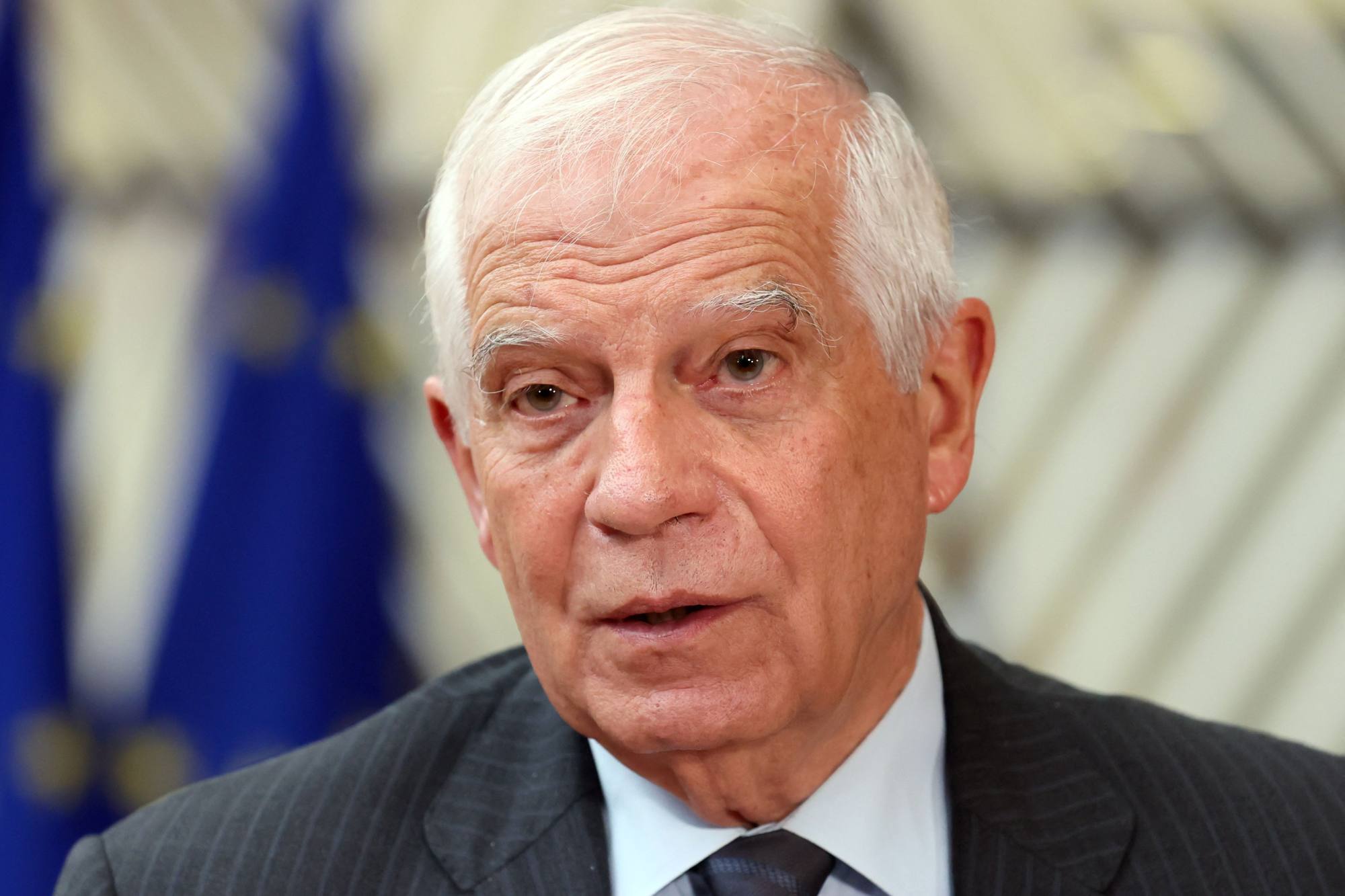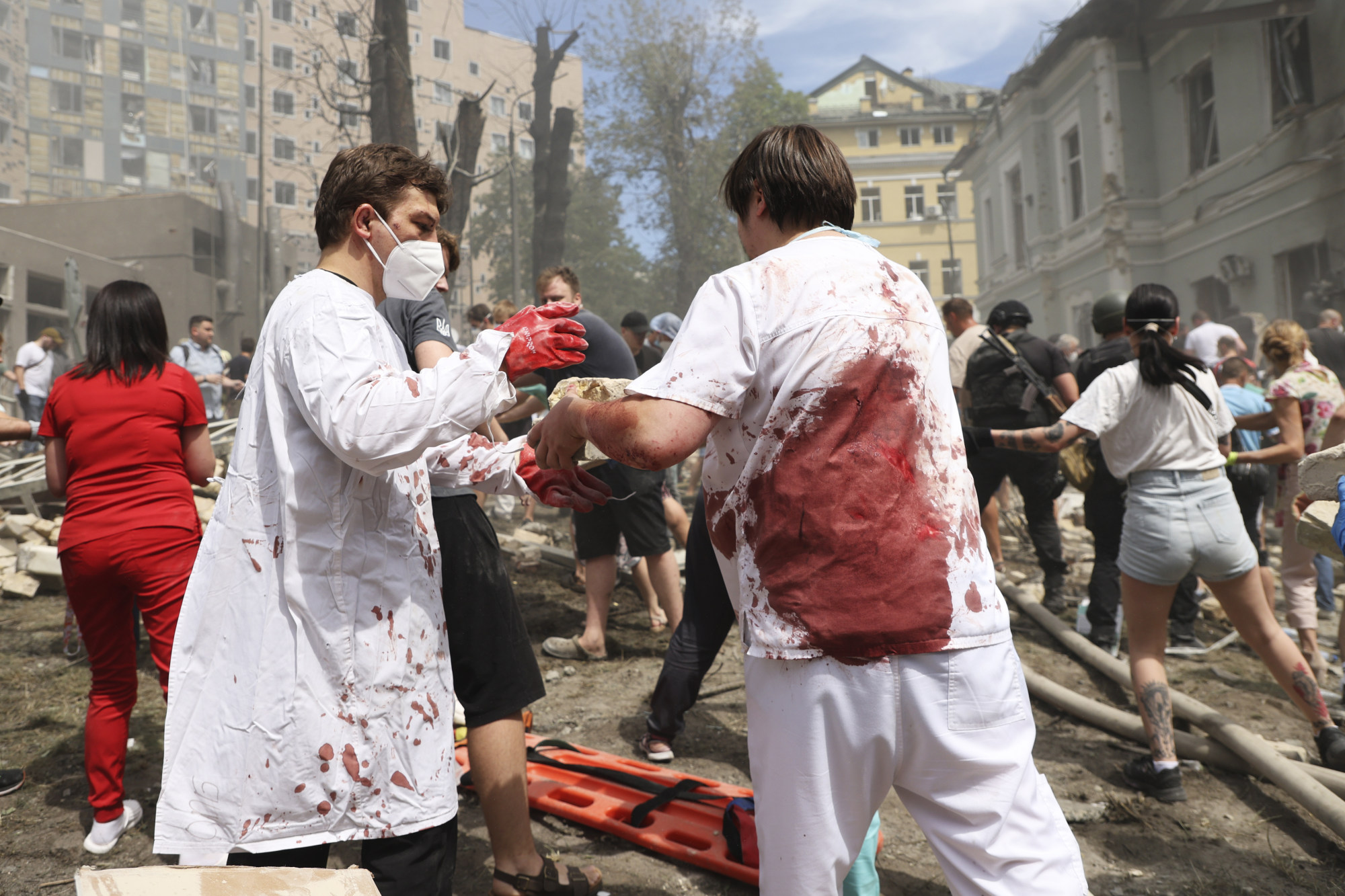While the position bestows no foreign policy authority, Orban visited Kyiv, Moscow, Azerbaijan and Beijing in quick succession and on each occasion, posted images using the official logo of Hungary’s EU leadership.
On each stop, he has called for an immediate end to hostilities – departing from the EU’s official position of considering Russia to be the aggressor and that peace must be made on Ukraine’s terms.
“He has no mandate on these visits to represent the EU,” European Commission spokesman Eric Mamer told reporters on Monday.
The rotating presidency gives each EU member state a turn at setting legislative agendas and chairing meetings in Brussels, where diplomats thrash out policy minutiae.
The presidency confers no control over EU policy or foreign affairs, but can play a guiding role in prioritising certain legislative points.
At every stop on Orban’s tour, fury has spread like wildfire through the Belgian capital. Ambassadors plan to grill Hungary’s representatives in Brussels on Wednesday, a diplomatic source said.
“There is growing concerns in the capitals about the self-attributed role of Mr Orban in the so-called peace mission, where it should be clear he is only representing his own country,” the diplomat explained.
The Hungarian leader “has intentionally left a lot of ambiguity, while for example displaying the logo of the presidency in his dramatic communications”, the diplomat added.
On Monday, some member states were “seriously considering gathering a majority” to come up with a way to punish Budapest for abusing the terms of the rotating role, a senior EU official said, with the European Commission’s legal service also preparing to give its opinion.
The cumulative effect is a “a message for the region that China is looking at these countries – Belarus, Russia, Hungary, Serbia – with great interest”, said Csaba Káncz, a Hungarian geopolitical analyst.
Patience on the continent is also wearing thin over Budapest’s blocking of more military support for Ukraine through the European Peace Facility, which has been agreed by the other 26 capitals.
Since Russia invaded Ukraine, Hungary has been the most pro-Russian voice among EU members and has held up various sanctions packages targeting the Kremlin.
“He wants to weaken the EU from the inside,” said Peter Kreko of Budapest-based think tank Political Capital, of Orban. “He is frustrated by how Brussels treats him.”
Kreko pointed to a litany of grievances Orban held with the EU bureaucracy, including an excessive deficit procedure, “huge fines” for the treatment of refugees, the withholding of EU funds and “lots of criticism”.
“He is 100 per cent abusing the role,” said Kreko of how Orban was handling the presidency. “He pretends that he’s representing the European Union, but does not even inform them about his plans on where he is going.”
After Orban met Putin on Friday, EU foreign policy chief Josep Borrell said the Hungarian leader had “not received any mandate from the EU Council to visit Moscow”.

“Hungary is now the EU member state serving the rotating presidency” of the council until December 31, 2024, continued Borrell in a statement.
“That does not entail any external representation of the union which is [the] responsibility of the president of the European Council at the head-of-state or government level and of the high representative of the union for foreign affairs and security policy at [a] ministerial level.”
According to people briefed on the Orban-Xi meeting, the Hungarian leader dismissed the EU’s ongoing support for Ukraine.
“That is very much out of line,” the senior official said. “I think people are taken aback by how brutal the first week [of the presidency] has been.”

“I wonder how the peace dove feels today seeing the attacks on Kyiv,” the official quipped.
In an interview with German newspaper Welt before he left for China, Orban was defiant.
“War does not fall from the sky. War is the result of the decision of certain people,” he said in response to a question about Russia wanting to retain control of occupied Ukrainian territories.
“How are China, the United States and the EU going about it? China has a peace plan. America has a war policy. And Europe, instead of having its own strategic approach, is simply copying the American position.”
Sebestyén Hompot of the Central European Institute of Asian Studies suggested the tour was broadly aimed at the right-wing populist group his Fidesz party helped form in the European Parliament this week.
Patriots for Europe, the new far-right group, is now the chamber’s third-largest.
“This is part of building his image among other populists in Europe,” Hompot said. “We can count on Orban taking every opportunity to emphasise his role as a leader of the alternative, populist right in Europe, to reform in his view, the EU.”

